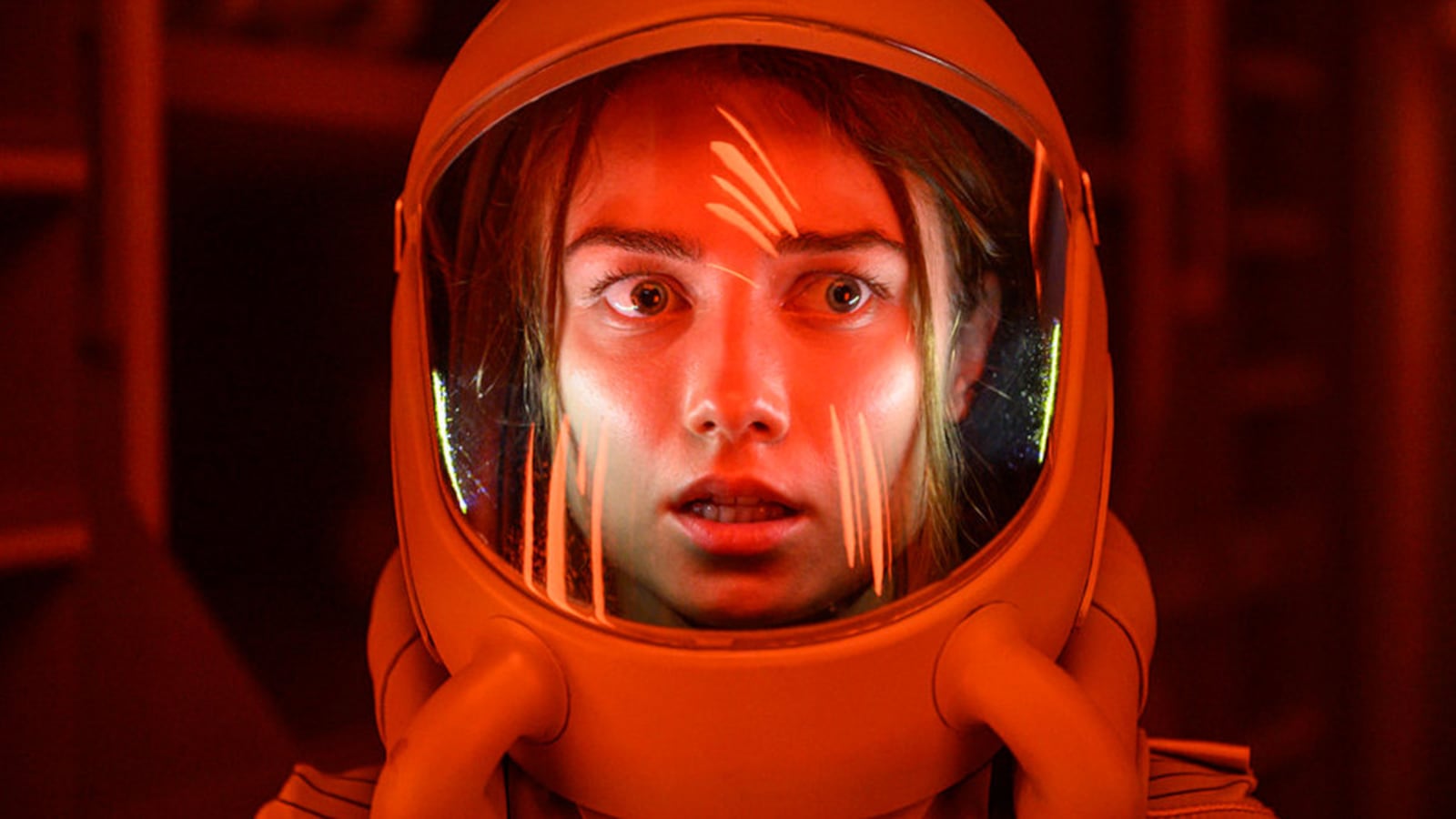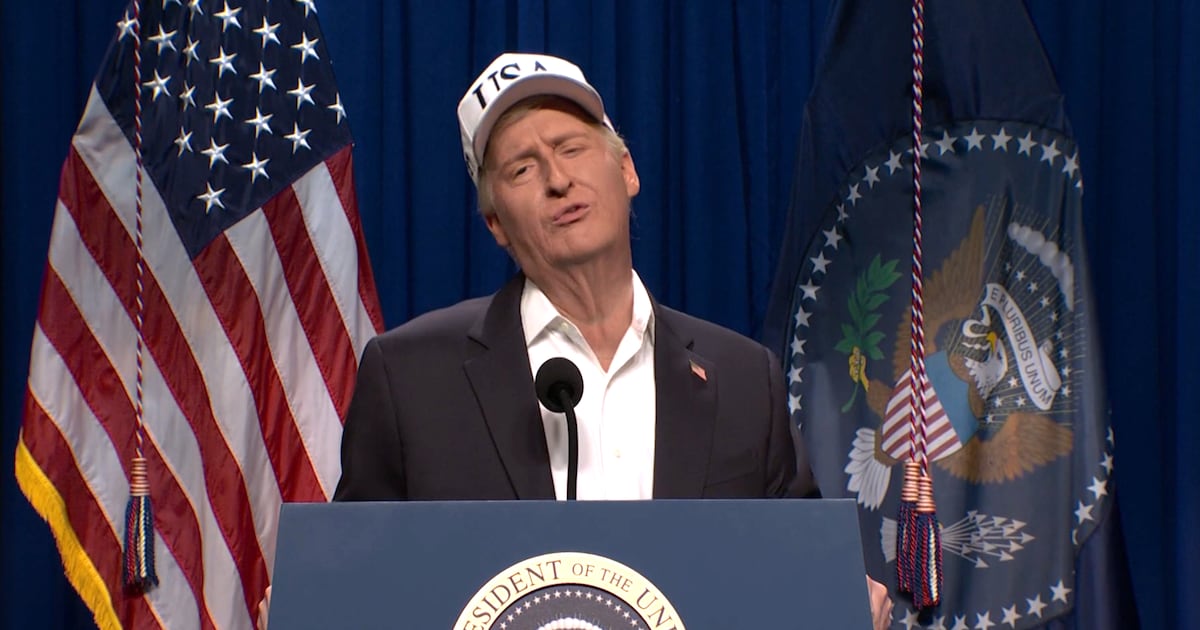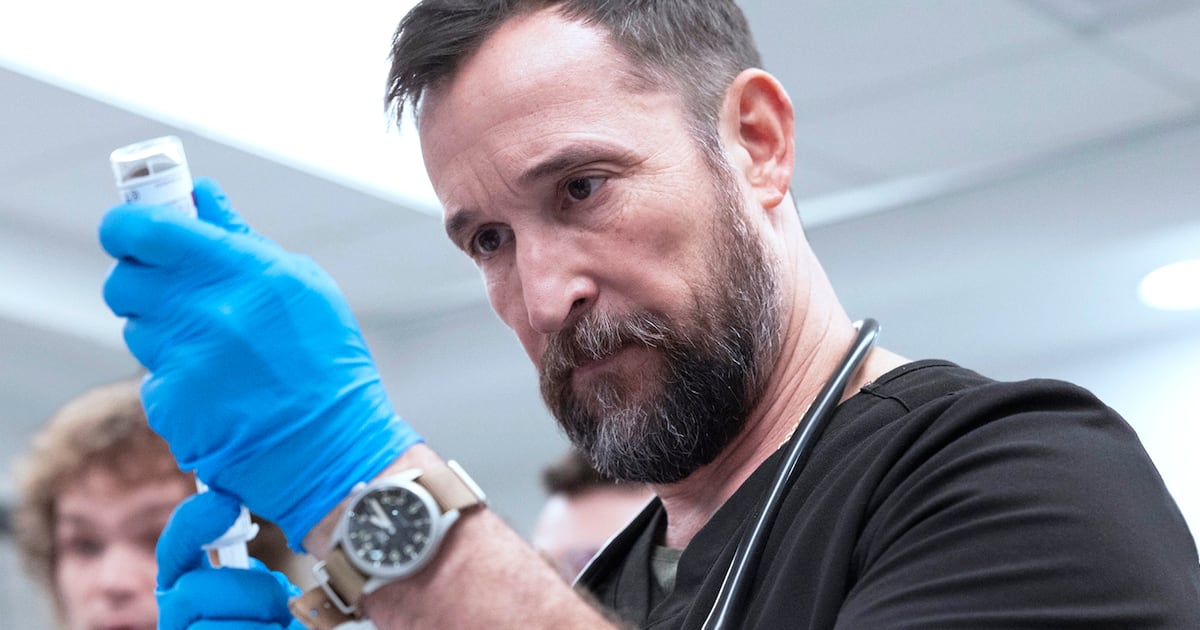Dean Devlin has made a career out of larger-than-life sci-fi spectacles, producing frequent partner Roland Emmerich’s Stargate, Independence Day, and Godzilla, and helming the more recent Geostorm. Thus, even though it’s debuting on Syfy rather than in theaters, The Ark fits comfortably into his body of work, insofar as it’s another tale of apocalyptic planetary threats and humanity’s desperate mission to stave off extinction.
Unfortunately, it’s also a calamity-oriented show that itself is a disaster.
The Ark is set in an unspecified future in which Earth is on the verge of becoming uninhabitable. In response, mankind has built a collection of enormous ships known as Arks that are intended to reach a distant planet fit for colonization.
If you’re hoping for additional specifics regarding the eco-catastrophe that’s spurred this endeavor or the specific cosmic destination of these travelers, you should stop, since Devlin’s series doesn’t—at least in the first four episodes provided to press—fill in those gaps. Instead, it simply assumes that viewers will go along with this scenario because it’s as familiar as genre-friendly concepts like warp speed and teleportation.

Devlin's saga begins in chaos, with blaring alarms indicating that an unexpected ship impact has resulted in a hull breach, thereby waking Sharon Garnet (Christie Burke) from cryosleep just in time to arouse her fellow crewmates and race them to safety before the entire bay is destroyed.
These men and women survive by the skin of their teeth but their commanders aren’t so lucky, leaving only three lieutenants—Garnet, prickly Spencer Lane (Reece Ritchie), and confident James Brice (Richard Fleeshman)—to assume control of their Ark. That’s a thankless job, since this incident has left the craft with only minimal food supplies and even less water, and certainly not enough of either to make it to their alien-world end point, which is still a year’s journey away.
A gung-ho, take-charge kind of leader, Garnet immediately assumes chief-commander duty, much to Spencer’s annoyance, and she’s fortunate enough to discover that she has at her disposal a bunch of can-do compatriots eager to help solve their urgent problems.
Angus (Ryan Adams) is a horticulturalist who conveniently snuck a giant crate of super-fertile soil onto the Ark (just in case their new home wound up being less abundant than tests indicated), and in the blink of an eye, he’s retrofitting a storage room into a greenhouse where he can grow enough food for everyone.
As for acquiring water, the first order of business is retrofitting the ship’s water recycling system, a task that falls to Eva Markovic (Tiana Upcheva), a tough engineer who’s carrying on a secret (because it’s forbidden-by-regulations) affair with Harris Beckner (Dominik Cicak).

Eva’s covert bond with Harris isn’t The Ark’s only romance; Angus quickly develops feelings for Alicia Nevins (Stacey Read), a waste-management employee who’s actually a super-genius, although she winds up having eyes for Baylor Trent (Miles Barrow), who was involved with his much-older superior until she perished along with the rest of the high command.
This trio provides the show with a dash of YA love-triangle melodrama. Alas, it’s undermined by the fact that Angus is an insufferable cartoon nerd and Alicia is an even more intolerable cutesy motormouth whose every utterance makes one wish for a black hole to magically appear on the Ark’s horizon.
Given that its expedition was rudely interrupted by a mysterious mishap, The Ark is in constant danger during the series’ maiden chapters. Devlin and his creative team strive to keep things perilously tense throughout via both mechanical and logistical quandaries as well as interpersonal conflicts.
The most noteworthy of those involves a man named Jasper Dades (Chris Leask), who’s revealed to be an imposter and—after blackmailing Garnet with potentially damning dirt—is then murdered. The Ark is therefore a whodunit of sorts, with security chief Felix Strickland (Pavle Jerinic) leading an inquiry into the homicide that’s complicated by the possibility that other crew members may also be operating under assumed identities.
The Ark routinely throws suspicion around, only to swiftly dispel it and move on to other potential suspects. At the same time, it feebly attempts to flesh out its numerous characters. Those include Cat Brandice (Christina Wolfe), a shallow celebrity therapist who’s the high-profile face of this costly venture, and Dr. Sanjivni Kabir (Shalini Peiris), the sole qualified medical professional left on-board to tackle the rash of physical and psychological maladies plaguing her comrades.
Together, they’re a superficially diverse group, but all of them resonate as one-dimensional types, their personalities reduced to a few checklist traits and their plights as dull as the Ark’s pristine gray interiors. It doesn’t help that the show’s cast is equally drab, their performances corny, broad, and altogether unconvincing, whether they’re bickering like schoolchildren, behaving shiftily, or pulling off feats of derring-do outside the ship in an effort to discover, and fix, the root cause of their intergalactic-travel troubles.

There’s much racing through corridors in The Ark, as well as crew-member discontent, intimations of sabotage-centric conspiracies, and leaden dialogue. What’s missing is compelling action, serviceable CGI, and a sense of this all taking place within a grander context. Worse, the show is infinitely more fixated on pressing sci-fi setbacks and obstacles (The doodad is on the fritz! The whatchamacallit is leaking!) than on intriguing human relationships or thorny socio-political ideas. There’s nothing under the hood of The Ark except a lot of ho-hum parts borrowed from better voyage-into-the-beyond sagas.
The Ark’s first season will run 12 episodes, so it’s always conceivable that the show will ditch its adversity-of-the-week format—which is fundamentally lazy considering that The Ark must, by definition, survive—and focus on developing its protagonists in novel ways. As it stands, though, there’s no reason to count on such an evolution, what with the fourth episode hinging on a wannabe-bombshell revelation about Garnet that lands with a thud.
A far cry from Star Trek and Battlestar Galactica, Devlin’s series is devoid of any big concerns or inventive suspense. It is regurgitated sci-fi formula that unimaginatively goes where countless ancestors have gone before.
Keep obsessing! Sign up for the Daily Beast’s Obsessed newsletter and follow us on Facebook, Twitter, Instagram and TikTok.





